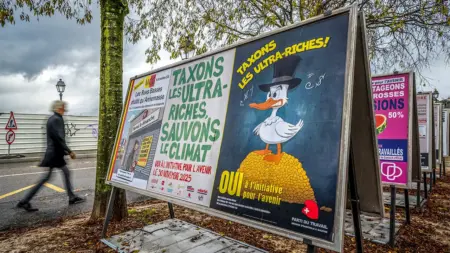Spain’s ruling Socialists suffered heavy losses to opposition conservatives in Sunday’s local election, with around 95% of the votes counted, showing their electoral vulnerabilityahead of an end-of-year general election.
Only three of the 12 regions holding elections will retain Socialist dominance by very narrow margins, with the rest likely go to the conservative People’s Party, albeit with coalitions or informal support agreements with the far-right Vox party.
“The map changes completely and is a boost for Alberto Nu?ez Feijoo – the new leader of the PP – ahead of the elections at the end of the year,” said Ignacio Jurado, professor of political science at the Carlos III University.
The gains for the People’s Party (PP) indicate the conservatives could unseat the current left-wing coalition led by the Partido Socialista Obrero Espa?ol (PSOE) if they replicate the performance in national elections by December.
The numbers showed few clear majorities, except in the Madrid region where regional president Isabel Diaz Ayuso of the PP looked set to win re-election with an absolute majority.
“In votes the right-wing bloc expands but not dramatically. But that swing is enough to shift the centre of gravity from the left to the right,” Jurado said.
The main setbacks for the Socialists came from losses in the Valencia, Aragon and Balearic Island regions, as well as in one of the most important Socialist fiefdoms, the southwestern Spanish region of Extremadura.
“The tsunami that has swept through all the Spanish regions today has also swept through us,” Javier Lamban, the outgoing Socialist president of Aragon, told a press conference where he admitted defeat.
Leadership in the Canary Islands will be decided by pacts but PSOE have few chances of retaining power.
PSOE spokesperson Pilar Alegria told a press conference that the results were not “what we hoped for.”
In big cities such as Valencia and Seville, where mayors were also elected, the count turned in favour of the PP, which also won an absolute majority in the city of Madrid.
Barcelona was an outlier among big cities, with a pro-independence party winning the most votes by such a narrow margin that it will need an agreement with the Socialists to unseat the current mayor, far-left Ada Colau.
Campaigning had been marked by controversies, from allegations of voter fraud in small towns to an unprecedented case of kidnapping.
The counting showed a return to a two-party system dominated by the PSOE and PP after a decade of greater involvement by smaller parties such as the left-wing Podemos and centrist Ciudadanos, which appeared largely to have lost its seats to the PP.
(REUTERS)





